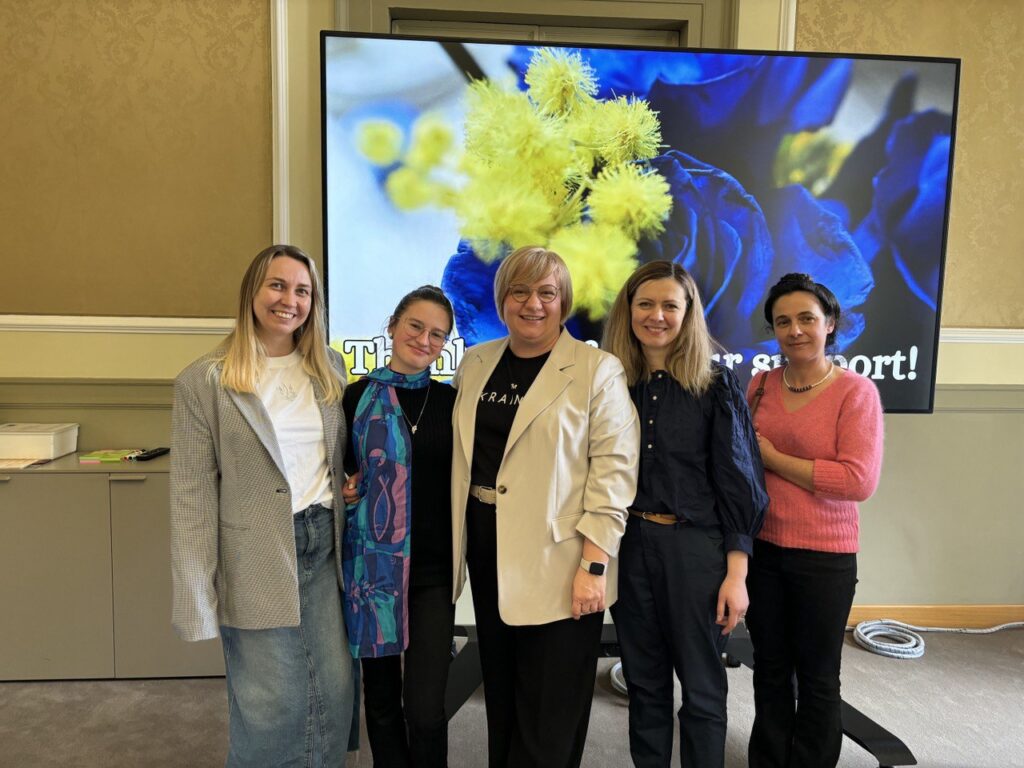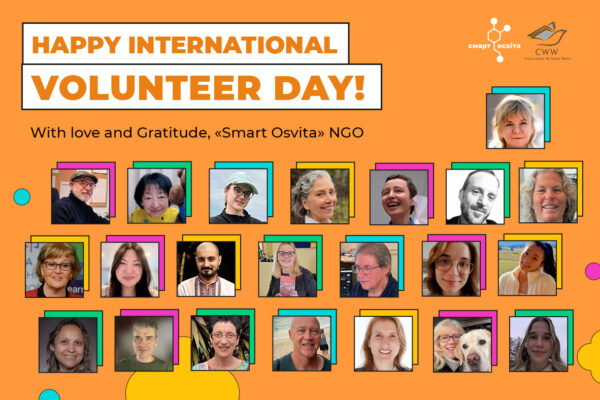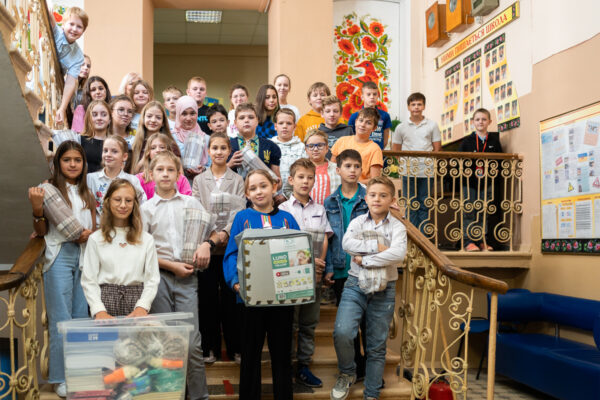

We have been cooperating with Monash University, one of Australia’s best higher education institutions, for many years thanks to the support of Classrooms Without Walls (CWW) and its leader, our partner David Falconer.
Almost 2 years ago, the university became our partner in the project “Ukraine Speaks English” and still helps to attract foreign volunteers who conduct free English classes for Ukrainian children.
The next step in our cooperation was technical support for our educational projects. The University provided Smart Osvita with a Learning Management System (LMS), a learning management system used to develop, manage, and distribute online educational materials with shared access, free of charge. Thanks to this system, we now have the opportunity to provide safe online learning for Ukrainian children and make up for their educational losses.
In March 2024, our NGO and Monash University reached a new level of partnership and began developing recommendations for foreign and Ukrainian teachers on how to work with Ukrainian children in war.
On March 12, a workshop on “Trauma-Informed practice education” was held in Prato, Italy, with the participation of Monash University researchers, representatives of the “Classrooms Without Walls” NGO, and representatives of the “Smart Osvita” NGO: Olena Zhupanova, manager of the “Ukraine Speaks English” project, Oksana Makarenko, head of the organization’s psychological department, and Tetiana Shyriayeva, scientist, psychotherapist, and our partner.
The purpose of the meeting was to develop recommendations for foreign teachers on how to work with Ukrainian children during the war and to take into account all the peculiarities of this work format. In addition, foreign partners will provide their expertise in teaching and psychological advice, which we will combine with our own experience and provide to Ukrainian educators.
During the workshop, the Ukrainian part of the team made a presentation of research on the situation of Ukrainian children in the war: they told how many children study online, offline, and in a mixed format, what a “mixed format” is, and how it works, how many students miss school because of air raids, and so on. They also talked about the psychological peculiarities of teaching: how we deal with the stresses of teachers, children, and parents; what are the peculiarities of communication and interaction with children; what are the rules and “taboos” that have arisen because of the war.
“Do not call our war a ‘conflict’. What is happening in Ukraine is massive fighting and destruction, comparable to World War II. The term ‘conflict’ understates the scale.
Ukrainians displaced by russian aggression may be traumatized by the word “refugees.” Most want to return home, and it is better to call them “displaced” rather than “refugees.”
My task was to voice and make these and similar things visible in the Ukrainian context. “We can provide our support and expertise,” Monash University of Australia told us, “and we are ready to develop guidelines for working with children during war, but we need you to explain things from the inside. The things we don’t see,” says Olena Zhupanova.
Sofiia Yakymenko, a student of the “Ukraine Speaks English” project, also came to the workshop to become the voice of Ukrainian children and talk about the peculiarities of students’ perception of the learning process in the context of war:
“All children experience this war differently: some in a bomb shelter, some abroad, and some in apartments without electricity. It is a different experience for everyone; therefore, it is impossible to give advice that would work for everyone. However, there are general recommendations that I think should be followed when working with all children.
For foreign volunteers, these are: do not call the war a conflict, do not say that culture is beyond politics, and do not call temporarily displaced persons emigrants or refugees because most of them want to return.
We also need to understand that because of the war, Ukrainian children have grown up faster than their peers from abroad, so the approach to them should be appropriate, not childish. And the most essential thing for Ukrainian teachers and foreign volunteers is to listen to children and ask them what they want to talk about at this particular moment in their education.”
Sofiia has been with us from the beginning of the project. Although she currently lives with her family in Italy, she participates actively in the Ukrainian community. At 14, she is involved in many international activities, including leading a leadership group with “Classrooms Without Walls” and writing books.
“I have been working with the “Ukraine Speaks English” project for 2 years. Since my first meetings in Lviv, where I temporarily moved with my parents at the beginning of the war, it has allowed me to communicate with like-minded peers and supported me while I moved back to Kyiv, entered a new lyceum, and left for Italy. In addition, these meetings continue to show daily that people abroad are willing to help and support Ukrainians in any way they can. As one of the Afghan students of “Classrooms Without Walls” said, these meetings remind us that humanity still exists.”
The cooperation program with Monash University to develop teacher guidelines is designed to last until the end of September 2024. As a result of the program, we will present the developed materials for foreign volunteers and Ukrainian teachers and provide psychological materials for educators, taking into account the peculiarities of the state of children in war.
We are pleased to start such an exciting and valuable cooperation and unite people worldwide. People with different backgrounds but with the same goal: to help the Ukrainian education system and Ukrainian children learn not only efficiently and effectively but also comfortably and safely.








